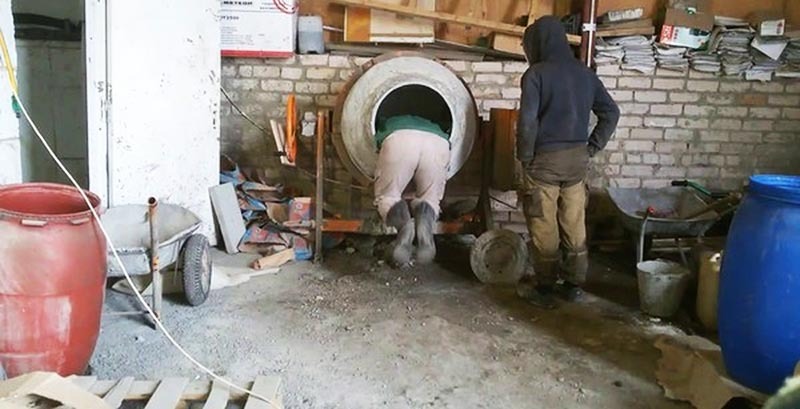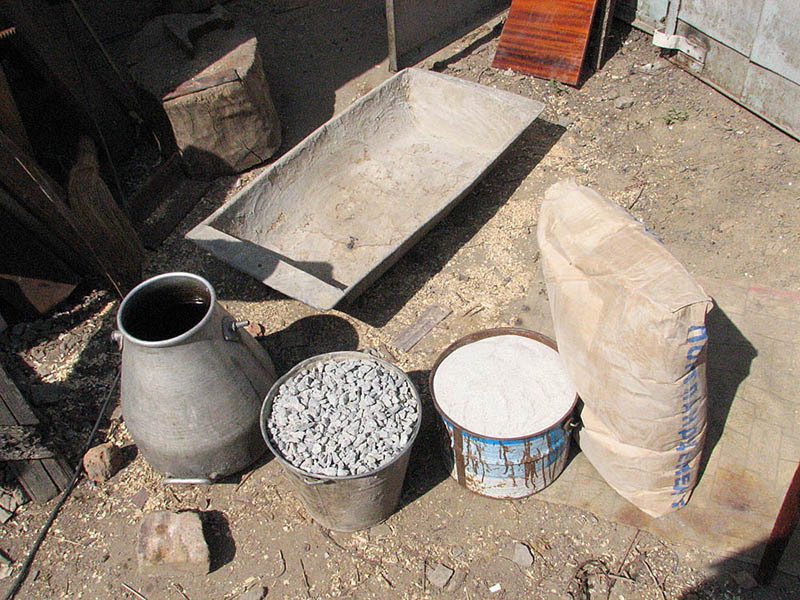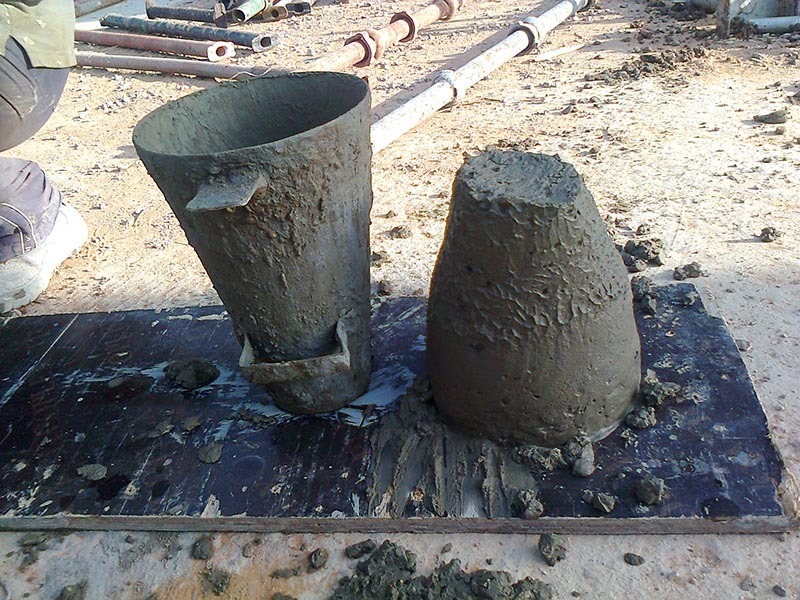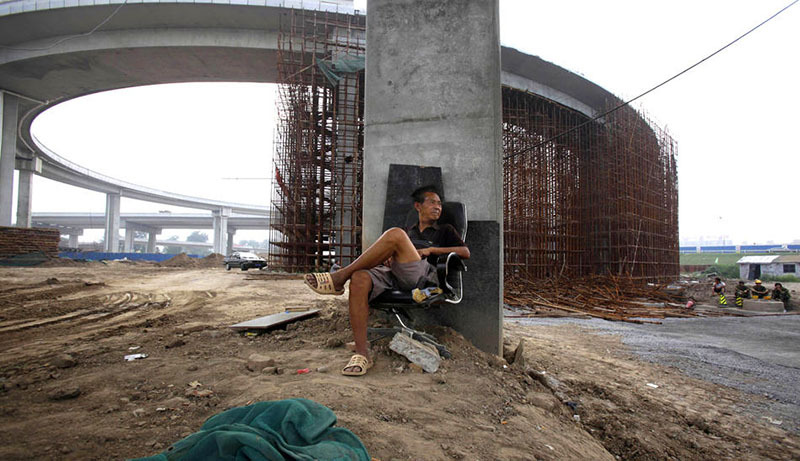A concrete mixer is a great tool when used correctly. There are, however, alternative options: a shovel and a trough, but a lot of effort will be spent on such work, and you can direct them in a more useful direction. There is a third way out - just to hire workers, but not the fact that they will make you a high-quality solution, there are many such examples. Whatever you want to do well - do it yourself. So today we will consider the issue of preparing a concrete solution using a concrete mixer. It would seem, what's the catch? But no, there he is, hidden somewhere between instructions and practical experience.
Read in the article
- 1 How to quickly throw out a concrete mixer
- 2 How to make concrete in a concrete mixer without losses
- 3 Laziness is the engine of progress
- 4 How to clean a concrete mixer after mixing
How to quickly throw out a concrete mixer
Due to inexperience, novice builders first fill in sand with cement, interfere, and then add water and crushed stone. What happens? Due to the uneven distribution of water, the composition immediately sticks to the walls, then you have to live in this concrete mixer, scraping off the remnants of the solution.

This is not to mention the fact that if you leave the walls uncleaned, the instrument will generally become unusable. So we conclude: the water should be evenly distributed at once, then there will be no sticking, and more - we need a simple cleaning algorithm so as not to work with a scraper.
How to make concrete in a concrete mixer without losses
Each master definitely has his own secret of making a good solution. Here is one of those recipes.

For 100 liters of concrete, you need to prepare: 2 buckets of M400 cement, 6 buckets of fine gravel, 6 buckets of sifted sand. The water content should be approximately 22% of the volume of the finished mixture. That is, in our case - 20-22 liters. This amount of water is not used immediately, about 3 liters must be set aside in order to bring the solution to the desired consistency with them. Excess water will reduce the quality of the solution.
Kneading sequence:
- turn on the concrete mixer, pour the prepared water;
- fill 4 buckets of rubble;
- fill in all the cement;
- fill in the remaining crushed stone (at this stage, the cement will be evenly distributed throughout the mass);
- add all the sand;
- after thorough mixing, add water, if necessary.

Laziness is the engine of progress
No matter what the evolutionists say, it was the lazy monkey, who was too lazy to climb for a banana, who turned into a man, and she knocked him down with a stick. So the whole concrete mixing procedure can be improved to keep the effort to a minimum. Count the same cement and crushed stone in the shovels. In order not to carry heavy buckets, use cement in a 25-kg package, and draw water from a hose into a barrel next to a concrete mixer. All this is a significant saving of energy.
And, of course, it is easier to stretch an extension cord to a construction site than to roll a wheelbarrow with a solution all over the site.

How to clean a concrete mixer after mixing
After unloading the concrete, turn on the concrete mixer again and load into it a couple of shovels of crushed stone and half a bucket of water. Let it work well, rubble and water clean the walls. This material can be used in the next batch, and if the working day is over, just pour it out. Or it can be done differently - as in this video.
Do you have your own proprietary recipe for making concrete? Share it in the comments!



